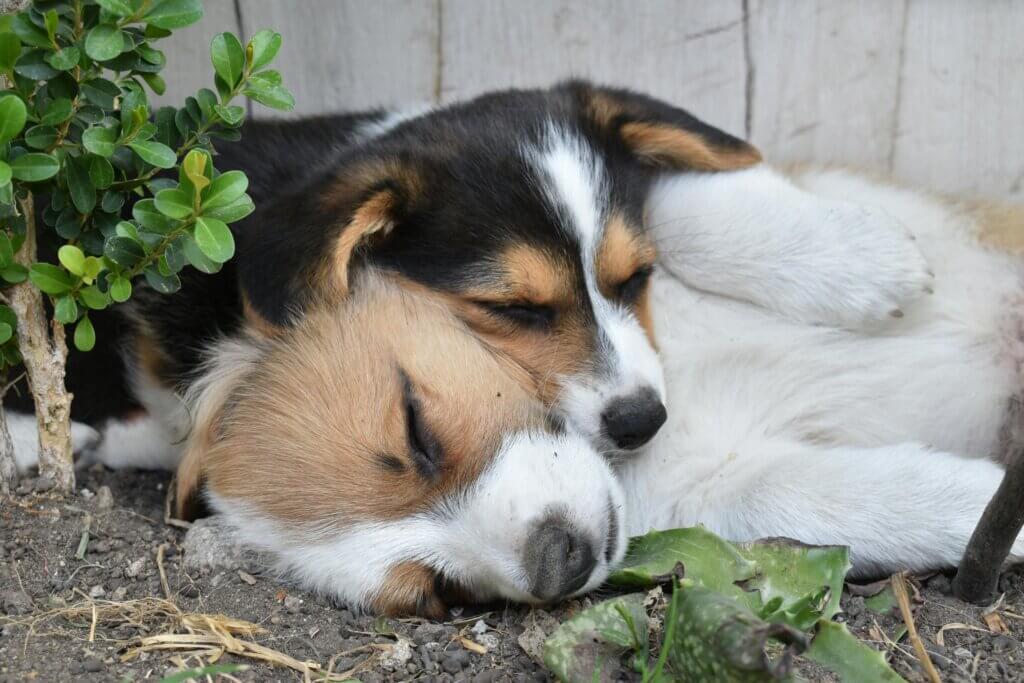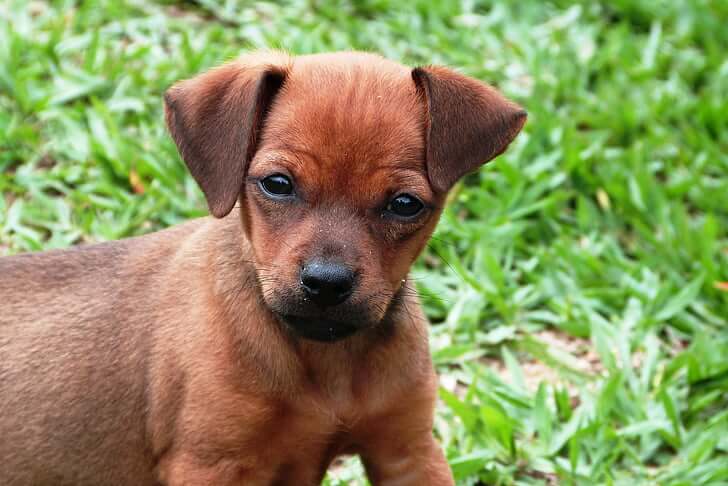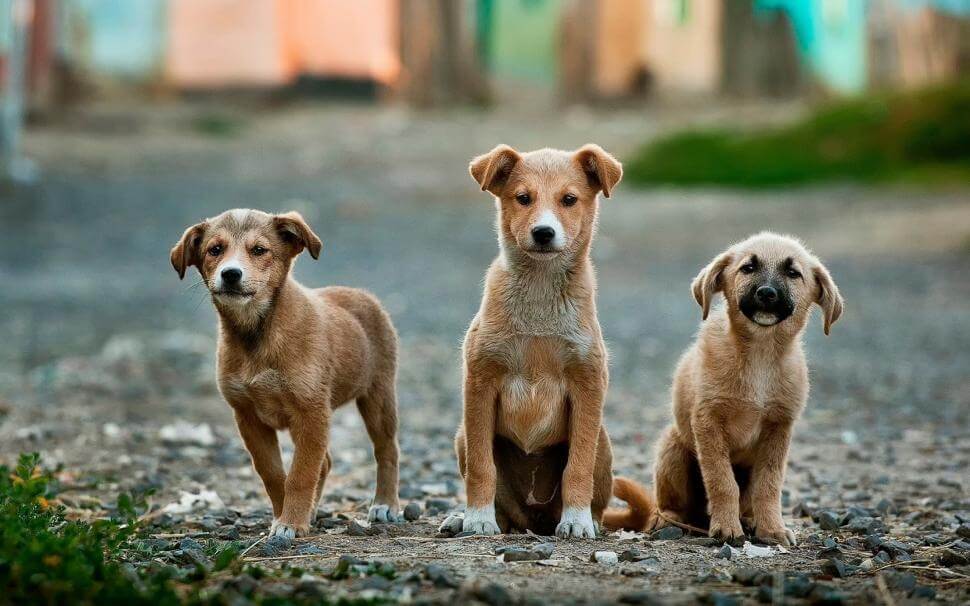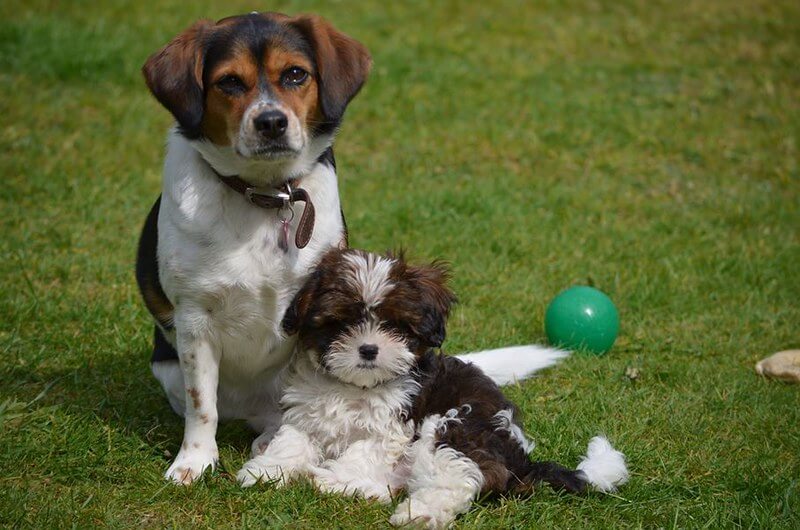What happens if a adult dog eats puppy food: Introduction
When you bring a new puppy into your home, ensuring nutrition is crucial for its growth and well-being. One common concern among pet owners is What happens if a adult dog eats puppy food instead of its specially formulated diet. Puppies have specific nutritional needs that differ significantly from those of adult dogs. Feeding puppies the correct food is essential to support their rapid growth, energy levels, and overall health.
What happens if a adult dog eats puppy food can vary, but it often leads to nutritional imbalances that can affect its development. Adult dog food lacks certain vital nutrients for puppies, such as higher protein levels and specific vitamins and minerals essential for their growth stages. This might cause digestive issues in the short term but can lead to more severe health problems over time.
Understanding the importance of feeding puppies the right food helps ensure they grow into healthy, happy dogs. This blog will explore the consequences of feeding puppies adult dog food and guide how to prevent and correct these issues.
What Happens If a Puppy Eats Adult Dog Food?

Nutritional Imbalances
When puppies eat adult dog food, they experience several nutritional imbalances that can affect their health and development.
- Lack of Essential Nutrients: Adult dog food often lacks crucial nutrients puppies need for proper growth. Puppies need more fat, protein, and vitamins and minerals like calcium and phosphorus. Adult dog food may not provide these correctly, leading to potential deficiencies.
- Excessive Nutrients: Conversely, adult dog food might have increased concentrations of specific nutrients, like protein or calcium, which can be too much for a growing puppy. Potential problems with excess protein, calcium, and other nutrients: Excessive protein can strain a puppy’s developing kidneys. At the same time, too much calcium can lead to skeletal issues, such as improper bone growth or joint problems.
Growth and Development Issues
Feeding a puppy adult dog food can also lead to growth and development issues.
- Delayed Growth: How a lack of proper nutrients can affect growth: Puppies might experience slower growth rates without the right nutrients. They might not reach their full size or developmental milestones at the expected times.
- Developmental Problems: Risks of skeletal and muscular issues: An imbalance of nutrients can result in developmental problems, including bone formation and muscle development. This can lead to long-term health problems affecting a puppy’s mobility and overall well-being.
Health Risks and Potential Side Effects
Feeding adult dog food to puppies can cause various health risks and potential side effects.
- Digestive Issues: Puppies might experience digestive upset, diarrhea, and vomiting. Their digestive systems are sensitive and may not handle the different nutrient balances of adult dog food well.
- Weight Problems: Puppies may face risks of obesity or underweight issues from incorrect nutrient balance. Adult dog food may lead to excessive weight gain if it’s too calorie-dense or insufficient weight gain if it’s not calorie-rich enough.
- Behavioral Changes: Puppies may also experience potential impacts on energy levels and overall behavior. An improper diet can affect their energy levels, making them either overly hyper or unusually lethargic, and can influence their mood and behavior.
Ensuring puppies receive the right food is crucial for their health and development.
Short-Term and Long-Term Consequences
Immediate Effects
If a puppy eats adult dog food once or occasionally, there can be some immediate effects, though they may not always be severe.
- What to expect if a puppy eats adult dog food once or occasionally: In the short term, you might notice that your puppy experiences mild digestive issues. These could include diarrhea, vomiting, or stomach discomfort because of the variations in the nutritional content between puppy and adult dog food. The formula for adult dog food does not match the needs of growing puppies, so it might cause temporary upset in their digestive system. Additionally, you may observe changes in your puppy’s energy levels or mood as their body adjusts to the different nutrient balance. While these immediate effects can be uncomfortable, they are usually manageable with a return to the appropriate puppy food.
Long-Term Effects
If feeding adult dog food becomes a regular habit, the long-term effects can be more significant and potentially harm your puppy’s health.
- Potential long-term health issues if feeding adult food is a regular habit: Consistent feeding adult dog food can lead to serious health problems.
- Nutritional Deficiencies: Puppies require a specific balance of nutrients for proper development, including higher protein levels, fat, vitamins, and minerals. Adult dog food often lacks adequate quantities of these essential nutrients. Over time, this can result in nutritional deficiencies that affect your puppy’s growth and development. For example, insufficient calcium and phosphorus can lead to bone development issues, such as rickets or other skeletal deformities.
- Delayed Growth: Consuming adult food regularly can lead to delayed growth. Puppies may not reach their full size or developmental milestones at the expected times if they don’t receive the necessary nutrients. This can affect their physical development and overall health.
- Developmental Problems: Long-term feeding of adult dog food can also cause developmental problems. Insufficient nutrients can lead to improper bone formation, weak muscles, or joint issues. These issues may be uncomfortable and impact the puppy’s ability to move or play normally.
- Chronic Health Issues: Persistent nutritional imbalances may result in chronic health issues such as obesity or underweight. Excess protein and fat can contribute to obesity, while insufficient calories might lead to stunted growth and weakness.
- Immune System Impact: An inadequate diet can weaken the immune system, making puppies more susceptible to infections and illnesses.
Ensuring your puppy receives the correct food is crucial to avoiding these long-term health issues and supporting its overall development and well-being. Regularly feeding them specially formulated puppy food helps provide the right balance of nutrients needed for a healthy, happy life.
Understanding Puppy Nutritional Needs

what happens if a adult dog eats puppy foodImage Credit: Pick Pik
Puppy Nutrition Basics
Puppies have unique dietary needs compared to adult dogs. Their bodies are growing rapidly, so they need a special balance of nutrients to support their development. Key nutritional requirements for puppies include increased fat and protein intake, which are essential for their growth. Puppies also need a good mix of minerals and vitamins to promote their general health and development.
There are significant differences between puppy food and adult dog food. Puppy food is designed to be richer in protein, fat, and calories, which helps puppies grow and develop properly. Additionally, it has the proper ratio of minerals and vitamins, such as calcium and phosphorus, which are essential for bone growth. However, adult dog food is different and intended to preserve the well-being of adult dogs and often has lower levels of these nutrients.
Why Puppies Need Special Diets
Puppies require a special diet because their growth and developmental needs differ from those of adult dogs. During their early months, they build their bones, muscles, and organs, which demand a higher intake of certain nutrients.
Essential nutrients for puppies include:
- Proteins: For muscle growth and repair.
- Fats: to nourish healthy skin and fur and to give vitality.
- Vitamins A, D, and E are important for overall health and immune function.
- Minerals: Similar to how phosphorus and calcium are essential for bone development.
Feeding puppies the right food ensures they get all the nutrients they need to grow into healthy adult dogs
How to Correct the Issue

Transitioning Back to Puppy Food
If you discover that your puppy has been eating adult dog food, correcting the issue by transitioning back to puppy food is important. Here’s how to do it:
- Steps to safely transition from adult dog food to a proper puppy diet: Start by gradually introducing the puppy food into their diet. Mix a small amount of puppy food with the adult dog food. Over about a week, slowly increase the proportion of puppy food while decreasing the amount of adult dog food. This gradual change helps your puppy’s digestive system adjust without causing further upset.
- Importance of gradual changes: Gradual changes are crucial because a sudden switch in diet can lead to digestive issues like diarrhea or vomiting. Slowly adjusting the ratio of puppy food to adult food helps your puppy adapt to their new diet more smoothly and reduces the risk of gastrointestinal problems.
Consulting a Veterinarian
If you’re unsure how to handle the transition or if your puppy shows signs of health problems, it’s a good idea to consult a veterinarian.
- When and why to seek professional advice: If your puppy has been eating adult food for an extended period or exhibits symptoms such as persistent digestive issues, delayed growth, or unusual behavior, it’s important to seek professional advice. A veterinarian can guide the best action and check for any health issues caused by the diet change.
- What your vet can do to help: Your vet can help by assessing your puppy’s overall health and providing a tailored feeding plan to ensure they receive the right nutrients. They can also perform tests to check for any nutritional deficiencies or health problems resulting from the improper diet. Additionally, your vet can monitor your puppy’s progress and recommend any necessary treatments or adjustments.
Correcting the issue by transitioning to the appropriate puppy food and seeking veterinary advice ensures that your puppy gets back on track to a healthy and happy development.
Preventive Measures
Proper Food Storage
Proper food storage is essential to prevent your puppy from accidentally eating adult dog food.
- Tips for keeping puppy food and adult dog food separate: Store puppy food and adult dog food in separate, clearly labeled containers. This helps avoid any mix-ups. Keep the food in a cool, dry place to maintain its freshness and quality. If you have multiple pets, feeding them in different areas of your home can prevent them from accessing each other’s food. Ensure the containers are securely closed to keep the food safe from pests and maintain its nutritional value.
Education and Awareness
Educating yourself and others about proper feeding practices can help ensure puppies receive the right diet.
- Educating pet owners on proper feeding practices: Understanding the dietary needs of puppies versus adult dogs is key to preventing feeding issues. Provide information to new pet owners about the importance of puppy-specific food and the potential risks of feeding adult dog food. Sharing tips on recognizing the signs of nutritional imbalances and the importance of transitioning between different life stages of pet food can help maintain optimal pet health. Additionally, encouraging pet owners to consult with veterinarians about their pets’ dietary needs can ensure they follow the best practices for feeding their furry friends.
By putting these precautions into practice, you can help ensure that puppies receive the appropriate nutrition and avoid the issues that come from feeding them adult dog food.
Conclusion
In conclusion, what happens if a puppy eats adult dog food can lead to several issues, including nutritional imbalances and developmental problems. Adult dog food does not meet the needs of growing puppies, potentially causing digestive issues and affecting their growth and behavior.
Final recommendations:
- Feed your puppy a diet designed for its developmental stage. If it’s eaten adult food, gradually transition it back to puppy food.
- Educate yourself on proper feeding practices and keep puppy and adult food separate.
- If you have any concerns, consult a veterinarian.
Following these steps will help ensure your puppy’s health and proper development.
FAQs on What happens if a adult dog eats puppy food
What should I do if my puppy accidentally eats adult dog food?
If your puppy accidentally eats adult dog food, monitor it for digestive issues and gradually return it to puppy food.
Can eating adult dog food once harm my puppy?
A single bite of adult dog food may cause mild digestive upset, but it typically doesn’t lead to serious long-term issues.
How often can a puppy eat adult dog food without problems?
Puppies should not eat adult dog food regularly; thus, it is deficient in vital nutrients for their development and may result in medical issues.
YOU MAY ALSO LIKE:
Guide on how to select the best dog food for Huskies
What Should I Feed My Husky?
Corgi Feeding Guide
What to Feed a Diabetic Dog
Tips for Dogs with Sensitive Stomachs
Boxers Allergies and Skin Allergy Guide
Is Iams a Good Dog Food
Can Adult Dogs Eat Puppy Food
What is Chicken Meal in Dog Food
What is The Best Meat for Dog Food
Is Blue Buffalo Good Dog Food
Complete Guide to How Much Fresh Food to Feed a Dog
How Much Food for 60 lb Dog
How much Cesar Dog Food to Feed
How good is blue buffalo dog food
How Expensive is Farmer’s Dog Food
How Long is Canned Dog Food Good for After Opened
How Long Does a Bag of Dog Food Last
How Much Does Sundays Dog Food Cost
How to choose the best dog food for Huskies
How Much Does Cup of Dog Food Weigh
How to Treat Dog Food Poisoning at Home
How Much is Sunday’s Dog Food?
How Much is Ollie Dog Food in a Month?
How to Choose Dog Food
How Much Pumpkin to Add to Dog Food
How Much Does Farmers Dog Food Cost?
How Long Can Wet Dog Food Sit Out?
How to Soften Dog Food
How to Keep Dogs Out of Cat Food
How to Give Dog Pills Without Food
How to Get my Dog to Eat Dry Food
How to Keep Ants Out of Dog Food
How Much Does Dog Food Cost
How Long to Soak Dog Food
How Much Homemade Dog Food to Feed
How Much Wet Food to Feed a Dog
How to Transition Dog Food
How to Stop Food Aggression in Dogs Towards Other Dogs
How many cups of food should I feed my dog?
How to Stop Food Aggression in Dogs
How Many Cups in a Pound of Dog Food
How Long Does it Take a Dog to Digest Food
Why is My Dog Always Hungry
How Much Protein is in Dog Food?
How to Make Dog Food
how long to feed dog puppy food
What is The Cost to Make Homemade Dog Food?
How to Make Homemade Raw Dog Food
How to Make Homemade Dry Dog Food
How to Prepare Dog Food at Home for Senior Dogs
How to Train a Dog That is Not Food-Motivated
How Much Food Should I Feed
How To Store Dog Food
How Much Time Can a Dog Survive Without Consuming Water
How Long Can a Dog Survive Without Food?

